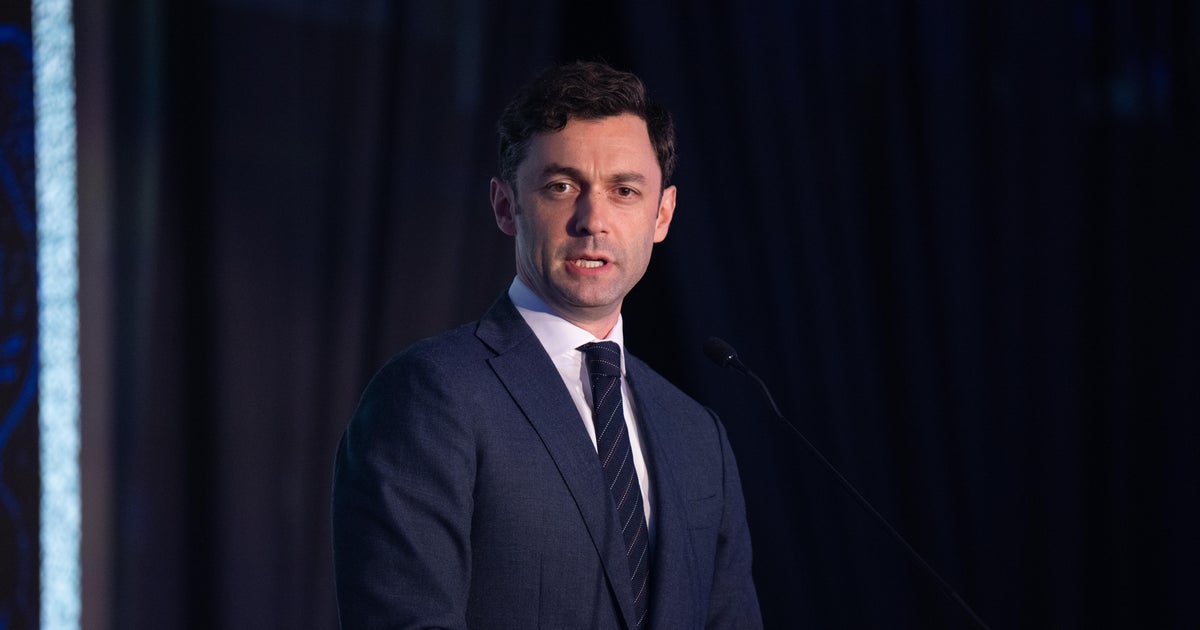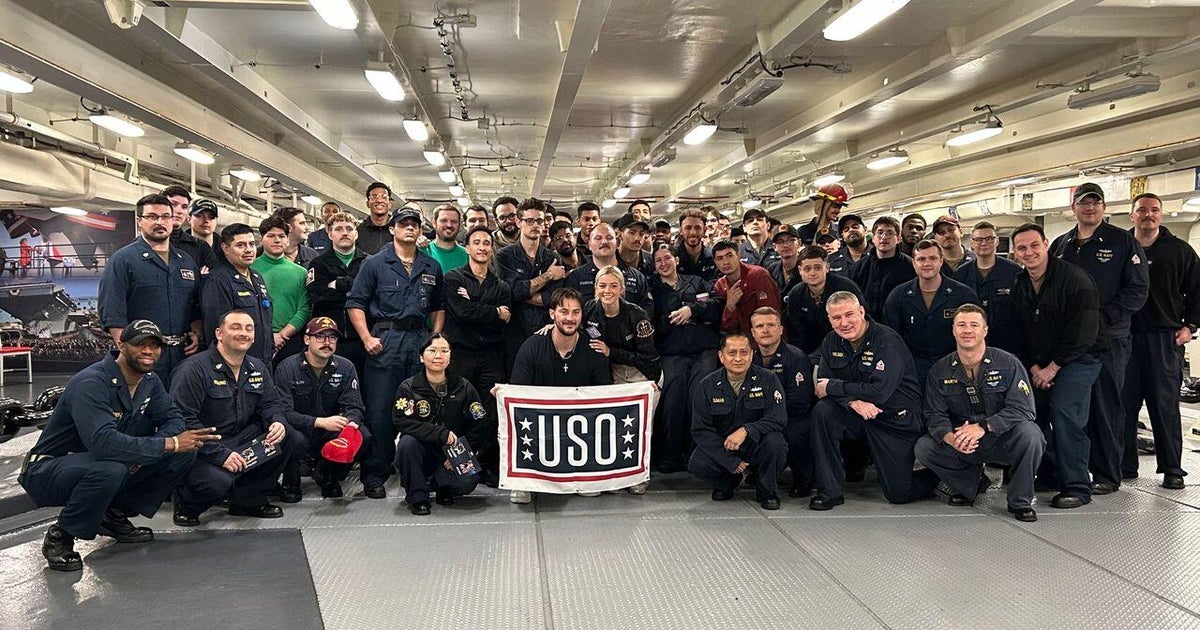Transcript: Rand Paul on "Face the Nation," December 23, 2018
The following is a transcript of the interview with Sen. Rand Paul, R-Kentucky, that aired Sunday, Dec. 23, 2018, on "Face the Nation."
MARGARET BRENNAN: We begin today with Kentucky Republican Senator Rand Paul. He sits on the Homeland Security and Foreign Relations Committees and he joins us this morning from Lake Jackson, Texas. Merry Christmas to you, sir.
SENATOR RAND PAUL: Thank you. Good morning.
MARGARET BRENNAN: You've been warning a lot about fiscal responsibility and this staggering twenty two trillion dollar debt. So with that in mind do you intend to vote for any kind of spending bill that includes billions of dollars from U.S. taxpayers without any offset?
SEN. PAUL: No. In fact, I've never voted for any of these large spending bills that puts all of this spending together because we have a trillion dollar deficit this year--
MARGARET BRENNAN: So the border wall is-
SEN. PAUL: And Republicans as you recall we promised we were going to spend less money.
MARGARET BRENNAN: The border wall is is not something you would vote for?
SEN. PAUL: We promised to spend less money and so I won't vote for it. Well I would if we were to offset it with cuts somewhere and so what I've advised is we spend about 50 billion dollars a year in Afghanistan. I think we should declare victory years ago. I think we should come home and out of that 50 billion dollars in savings I think we would have enough for a border wall and security.
MARGARET BRENNAN: I want to move though to foreign policy where you do seem to be aligned with the president. You've been on a tweet storm this morning saying of president's decision to pull out of Syria and cut our troop presence Afghanistan in half. You said, "the entire foreign policy establishment of Washington D.C. who two years ago were swearing Trump was going to start multiple nuclear wars now they're mad because he's stopping two wars. How about you just admit you hate the president, loved war and have been wrong for the last 20 years on every part of foreign policy?" Who were you referring to because the defense secretary and the top diplomat handling ISIS both resigned over these decisions?
SEN. PAUL: You know I think that we should look at some of the statements of the people who are advocating that we stay in Afghanistan forever and that we also stay now in Syria with no sort of determined end. General Mattis, even General Mattis said that there is no military solution to Syria. And he's also said there's no military solution to Afghanistan. How do you think our young soldiers feel? I have members of my family that are going over there soon. How do you think they feel being sent to Afghanistan when your generals are saying there's no military solution? So I think the burden is really on Mattis and others who want perpetual war to explain why if there is no military solution we're sending more troops. I think the onus is really on them to explain themselves.
MARGARET BRENNAN: Well on that issue, though it's not perpetual war, the argument has been from diplomats that you need the credible threat of military force in order to get people to the negotiating table. What is the incentive now in--
SEN. PAUL: Well this is--
MARGARET BRENNAN Afghanistan or Syria to have any kind of negotiation if there's no leverage?
SEN. PAUL: We've been there 17 years. We think now we're going to take one more village and we'll get a better negotiated deal? Does anybody--
MARGARET BRENNAN: Well that was the Trump administration says they're doing--
SEN. PAUL: --remember Vietnam? That was the strategy of Vietnam for years after year after year in Vietnam, was to take one more village and we'll get a better negotiated deal. No, they waited us out and the Taliban are going to wait us out. They know we will eventually leave and leave we must. I mean I don't think we have enough money to be paying to build and rebuild and build and rebuild Afghanistan. The President's right and I think the people agree with him. Let's let's rebuild America. Let's spend that money here at home.
MARGARET BRENNAN: Well if you accept the premise of what you just laid out here and some people do agree that particularly in Syria two thousand troops and two dozen diplomats can't make a difference. So if you accept that though, if you look at what the defense secretary put in his resignation letter, what you're hearing here is-is concern about how it's being done, about abandoning allies, about not having a process, about not being clear eyed regarding America's enemies--
SEN. PAUL: But here's the problem. I know--
MARGARET BRENNAN: How do you respond to that?
SEN. PAUL: But here's the problem with all of of these generals. They're like oh it's precipitous. We've been there 17 years we've been in the Middle East most of that time. It's not precipitous. The president promised when we went into Syria our goal was to wipe out ISIS. We took ninety nine percent of the land, they're on the run. Can the people who live there not do anything? We spent trillions of dollars arming the entire Middle East, arming Afghan army, can they not do anything. Do we have to do everything? We defeated ISIS. But now you have the the hawks in the administration and throughout Congress saying, oh now we have to wait til Russia and Iran leave Syria. Well that was never our goal and it's never going to happen. So those people are advocating for perpetual war--
MARGARET BRENNAN: Well, that was the goal articulated by the national security adviser to the president, John Bolton. That was what he said U.S. policy was.
SEN. PAUL: It was never the goal. It was never. That's a new goal. That's what you call mission creep. The mission has now changed that we're going going wait till Iran leaves and Russia leaves. Well the president told him that's not his mission. And that was never the mission. the mission was to wipe out ISIS. And we did succeed. And the thing is it's incredibly bold to win a war and come home. That's what the people want. If you poll the American people it's 60 to 70 percent of people are ready to get out of Afghanistan. And I'll bet you the same as Syria if you ask the people. It's only the people in Washington, the armchair generals that want to keep us at war forever and people- Americans are tired of it. We want that money here at home and we want to create jobs roads bridges here at home not in Afghanistan.
MARGARET BRENNAN: The concern raised by people like Brett McGurk who was the president's diplomat handling the anti-ISIS coalition is that if you move out too quickly, if you agree we're going to draw down, at least have a plan on how to do it, at least do it in a way that doesn't abandon allies. And in fact he warned in his resignation letter that this could create a vacuum that would allow terrorist groups like the Islamic State to reemerge, in other-other words we'll have to go back in a few years.
SEN. PAUL: That will always be true. What-what that-that statement will always be true,. That same will be true in 15 years. The place is a mess. I mean they've been fighting each other for a thousand years. Sunni and Shia have been fighting each other since Battle of Karbala 832 A.D.--
MARGARET BRENNAN: This is ISIS--
SEN. PAUL: They're going to fight each other to the end of time. It's all of them. The-the it's-it's a inter complicated mess that has to do with Sunni extremism versus Shia extremism and also some other various battles in between. But if we wait till there's a poten-no potential for anybody fighting each other when we leave, we will be there forever. But here's what we need to do and here's the real problem, we have so politicized the relationship with Russia that there isn't a Democrat in the land that is for any kind of negotiation with Russia now because they know it's an anti-Trump position to be heaping on Russia. Russia's a big player. If we don't talk to Russia about Syria, we will never come to a resolution. Iran is a player. We actually have to talk to Iran about Syria as well.
MARGARET BRENNAN: Yeah--
SEN. PAUL: Assad is a player. We have- we can't just say Assad's going to go. He won the war. These people have their head in the sand and they just want to send two thousand troops there. They become a tripwire to a possibility of a much expanded war involving Russia and Iran and that would be a huge mistake- mistake. I don't think the American people want another big war in the Middle East.
MARGARET BRENNAN: The Pentagon and State Department say there are tens of thousands of ISIS fighters still in Syria. How can you credibly say mission accomplished? Do you think ISIS has been defeated?
SEN. PAUL: I think the numbers are wildly inflated and nobody knows. I think there are maybe ten thousand so-called radicals and these are radicals. They're in Idlib and they're surrounded by Turks, Syrians, Kurds others. And I don't think they're going anywhere. And right now there's not a lot of heated battles going on. But my question is, why do American young men and women always have to lay our lives down? To the people of Iraq, are they incapable of doing anything? And here's the thing. Muslims need to ultimately police Muslim lands. When Americans are there and we kill someone who lives there, they see it as a religious affront and they see it as the Pagans have come to take their land and for everyone we kill, we create ten to one hundred more. So it isn't working. We have- have supplied them all with money we've given them uniforms we've given them weapons. They need to step up and they need to eradicate these violent people from their midst.
MARGARET BRENNAN: Senator Paul, thank you.
SEN. PAUL: Thanks for having me.







